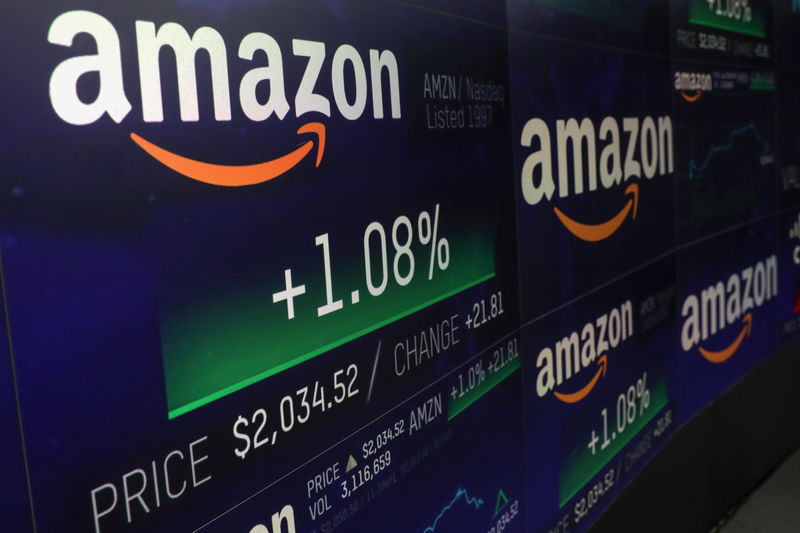© Reuters. FILE PHOTO: The logo of Amazon is seen at the company logistics center in Lauwin-Planque, northern France, November 15, 2022. REUTERS/Pascal Rossignol/File Photo
(Reuters) -Amazon.com is shelving several private clothing brands, a source familiar with the matter said on Thursday, as the e-commerce giant tries to cut costs and address antitrust scrutiny.
The move was first reported by the Wall Street Journal, which said the company has decided to eliminate 27 of its 30 in house-label clothing brands, leaving it with just Amazon (NASDAQ:) Essentials, Amazon Collection and Amazon Aware.
“If there are products that aren’t resonating with customers we deprecate those items and look for other opportunities to better meet their needs,” Matt Taddy, vice president of Amazon Private Brands, said in an email to Reuters.
The Journal had earlier reported that Amazon was discussing an exit from the private brands business as a concession to the U.S. Federal Trade Commission (FTC) if the regulators filed a long-awaited antitrust lawsuit against the retailer.
The FTC began probing Amazon during the Trump administration when the government decided to investigate several big tech companies for allegedly breaking antitrust law.
Amazon has faced a range of allegations from a long list of critics, including using third-party data to decide which products to sell, preferencing its goods to the detriment of independent sellers on the Amazon platform and requiring Prime sellers to use Amazon’s logistics and delivery services.
Other critics have said Amazon abused its gatekeeper power by refusing to allow big rivals to advertise against its products on the Amazon platform and used below-cost prices on goods and services to keep customers, including on Prime.
The company, which has denied any wrongdoing, is set to meet next week with the FTC to argue that the agency should not file an antitrust suit against the retailer, Reuters reported earlier this week.
Sharers of Amazon were slightly higher on Thursday. They have rallied more than 60% so far this year.
Read the full article here



